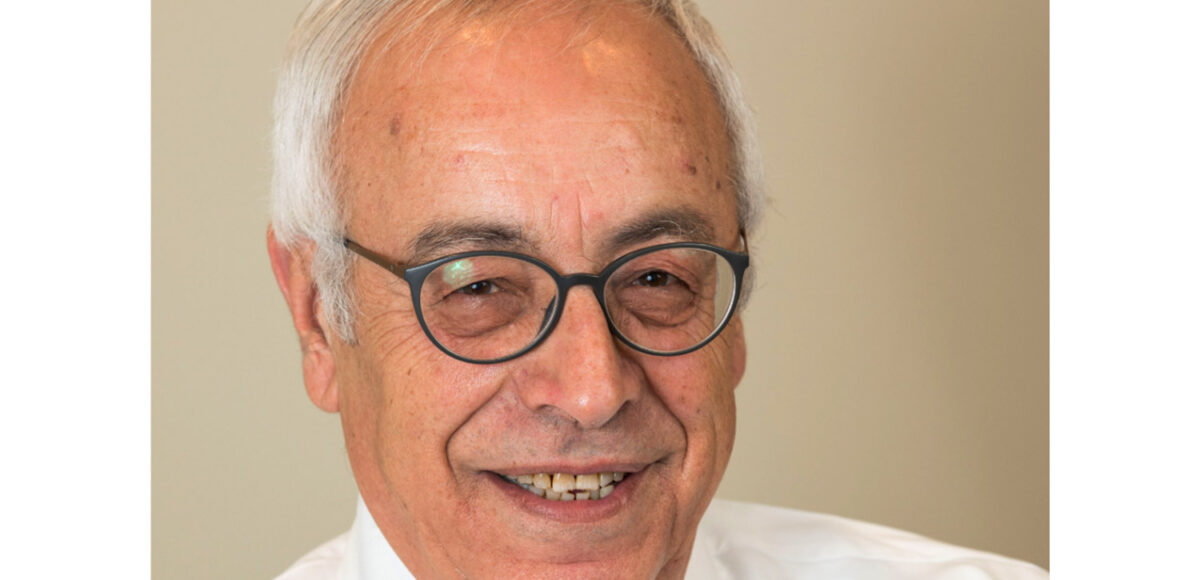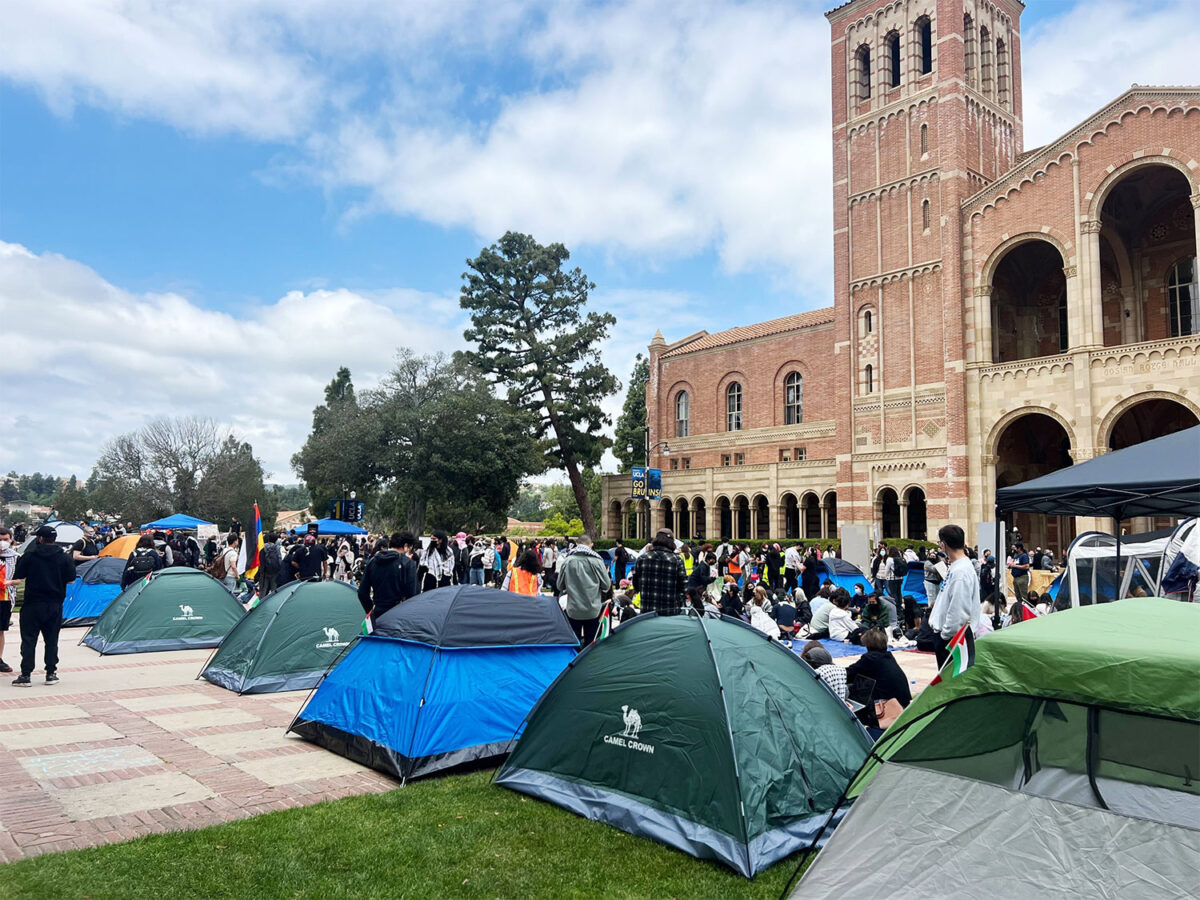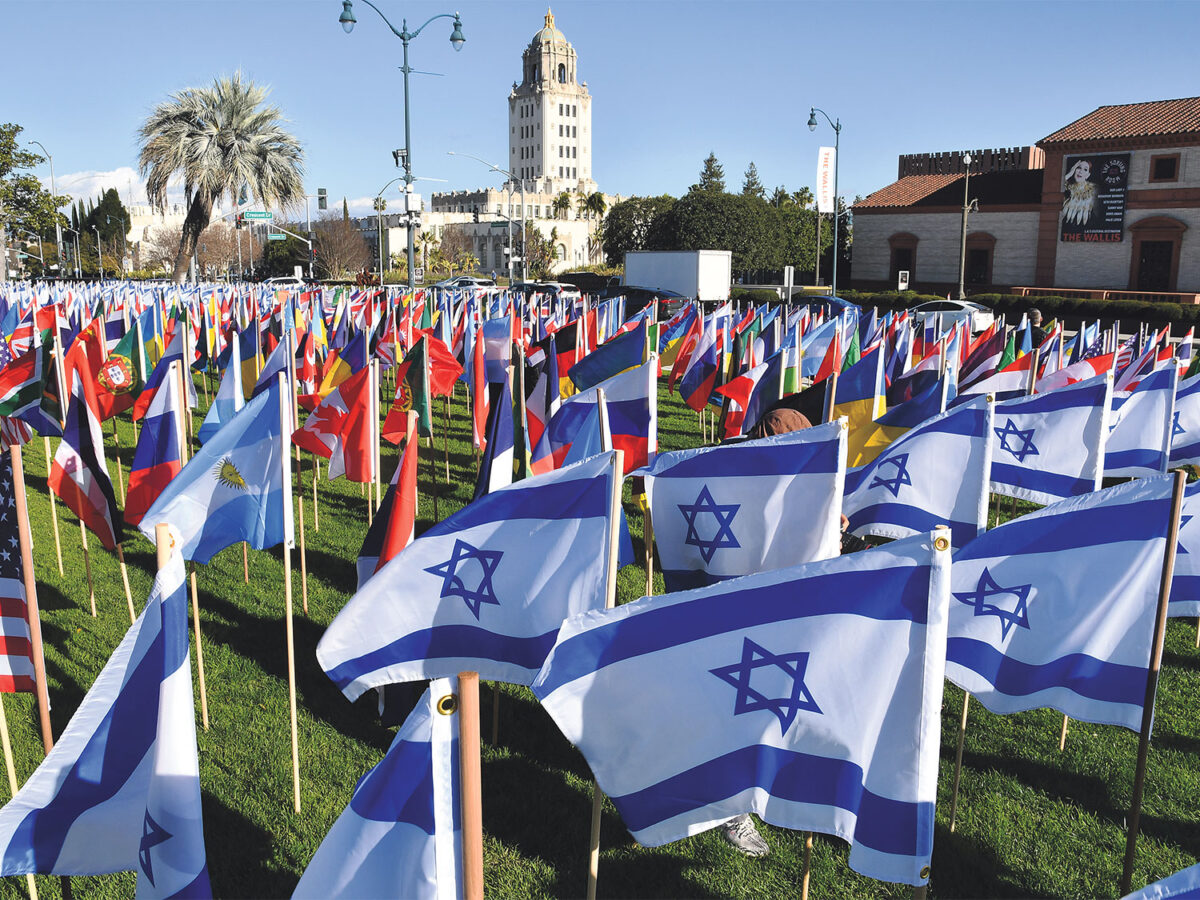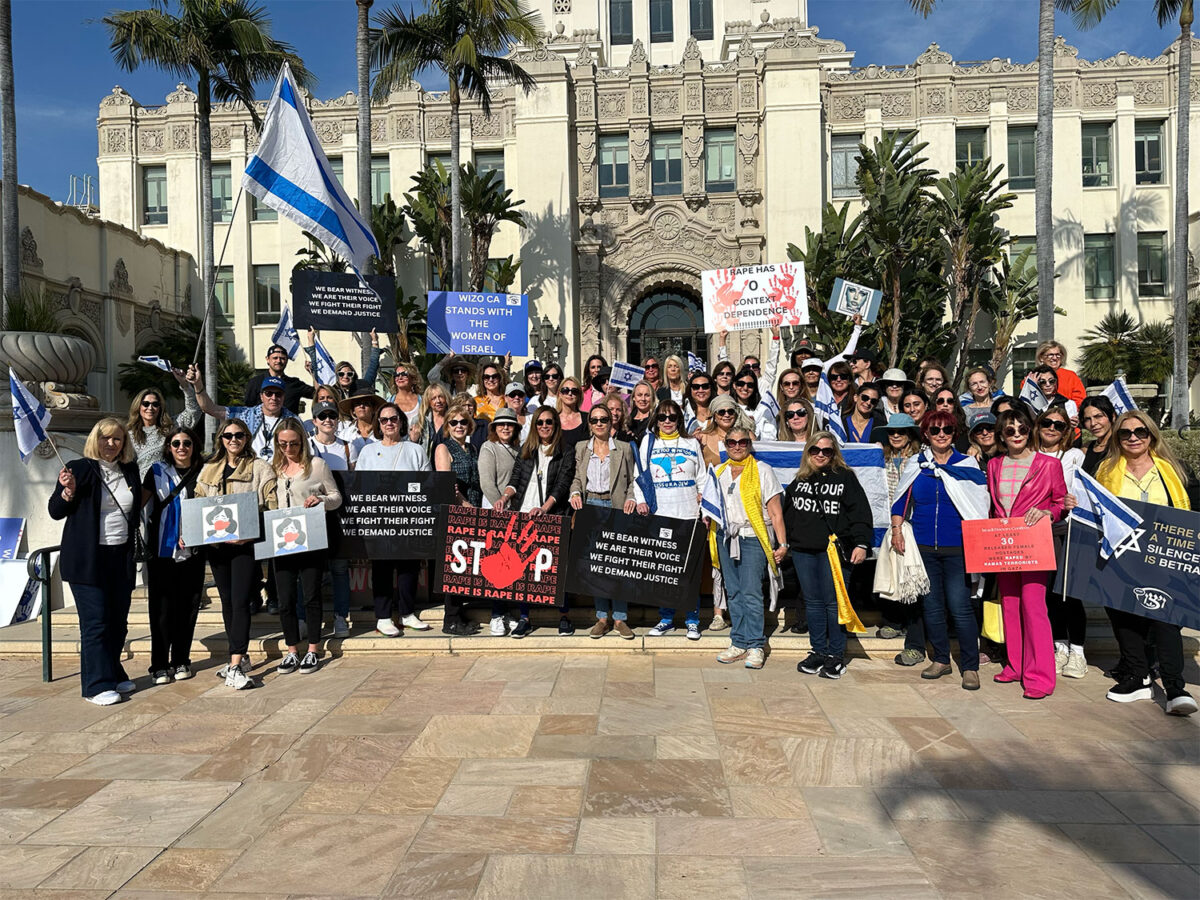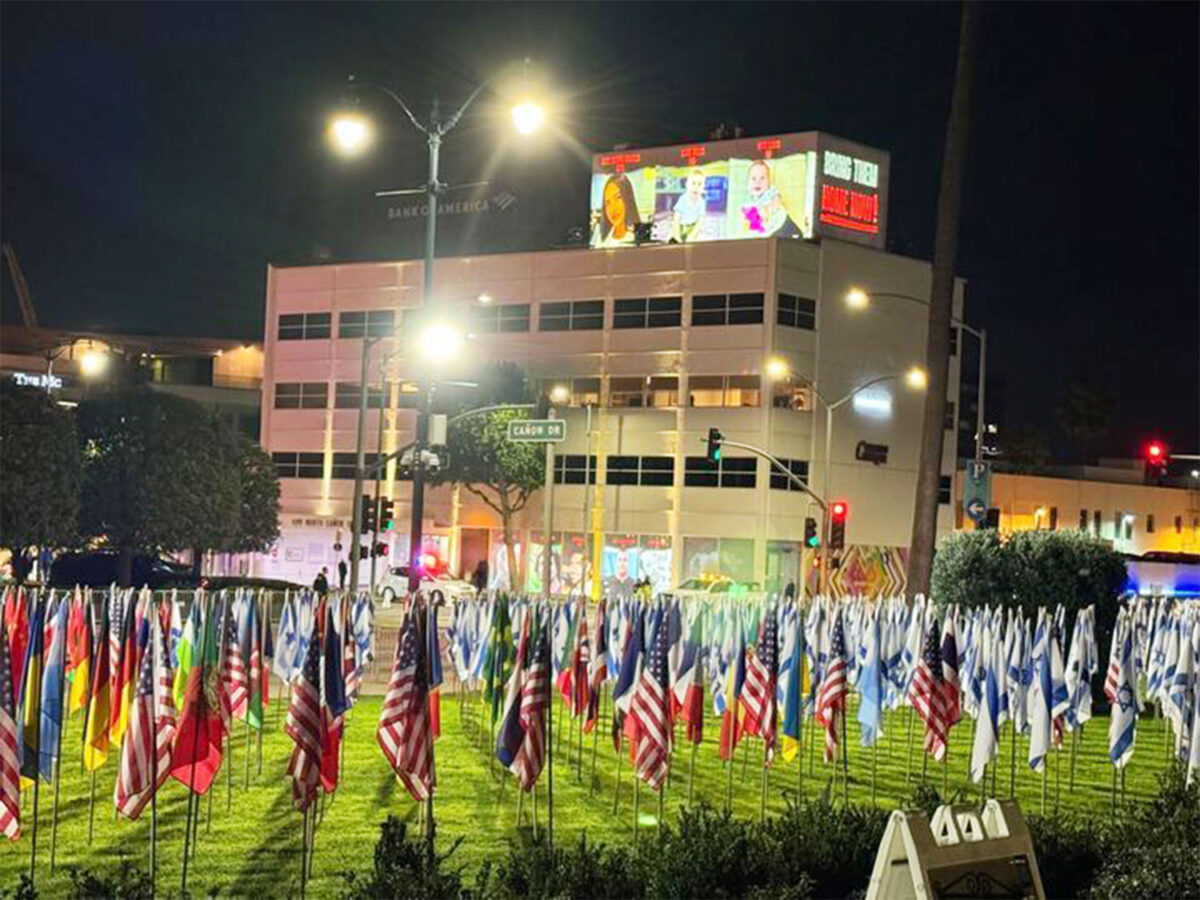Retired Israeli Ambassador to France, Monaco and the Netherlands Yossi Gal addressed an invitation-only group of approximately 60 prominent Westside residents on Nov. 5. The event, entitled “Dinner and Dialogue with Ambassador Yossi Gal,” touched upon the situation in Israel, the role of diplomacy and the abiding resilience of the Israeli people.
Gal elaborated upon those themes in an interview with the Courier a few days later, on the one-month anniversary of the Hamas terror attacks.
Gal’s own life experience provides a unique vantage point in the current crisis. Born to Moroccan parents who relocated to Israel, he attended Hebrew University on a scholarship. Gal would later go on to serve a celebrated career as a diplomat. He is credited with strengthening ties between Israel and Europe and helping to facilitate peace negotiations between the Palestinians and the Jordanians. Gal rose to become the Director General of Israel’s Ministry of Foreign Affairs before returning to Hebrew University, this time as its Vice President for External Relations and Advancement.
In fact, Gal made this trip to New York and Los Angeles as an ambassador for Hebrew University’s 5,000 students now currently on active military duty. He is raising funds to provide each of them a scholarship of $1,000.
“All the universities decided together that because we have so many of our students and faculty called up for active duty, either in the south or the north, that our first responsibility is to them. We delayed the opening of the school year,” said Gal.
Instead, Hebrew University has opened its facilities to accommodate evacuees from Israel’s northern and southern borders. Members of the university’s agriculture faculty are currently volunteering in the south of Israel to help farmers harvest their crops of tomatoes, cucumbers and peppers.
“This is what we do,” Gal told the Courier.
“If you were to come to Israel now you will be so amazed at the spirit of the Israeli people. People are donating blood, sending food to the frontlines, opening their houses. Before these attacks, we were talking about the political differences in Israel. There was fear that many would not be showing up if called to the army. Now, we have 140% showing up. We have people volunteering who were not called,” he said.
The political differences that plagued Israel a few months ago now seem distant. “October 7 will undoubtedly go down in history not only in the State of Israel but the world as one of the darkest days. A group of terrorists committed to the destruction of Israel, massacred 1,400 people for no reason, just because they are Jewish. We had an atrocity of biblical magnitude take place. All of our politicians decided to act together. The government is now united to pursue two things, the removal in a very decisive way of the threat of Hamas, and the return of the 241 innocent hostages,” said Gal.
That is not to say that tough questions will not persist. Israelis, and indeed the world at large continue to ponder the lapse of security that enabled the terror attacks on Oct. 7 to happen.
“We Israelis will have to go through some soul searching and ask lots of questions. Believe me, this will happen at the right time,” Gal observed.
As for the motivation behind the attacks, Gal doesn’t agree with the analysts who point to the potential diplomatic relationship between Israel and Saudi Arabia as a primary factor.
“For the last two generations the Middle East was moving in the right direction. Of course, the rapprochement with Saudi Arabia represented something significant. But Hamas was not looking for excuses. Their charter speaks very clearly and openly about the extermination of the Jewish people. This has always been their ideology,” said Gal.
He added, “I want to remind your readers of something. In 2005, Israel removed its presence from Gaza. Up until then Israelis were living there, but we removed the settlements. We even removed our dead from the cemeteries. We withdrew totally and gave it back to the Palestinian Authority. But then Hamas took over.”
With a month now passed since the attacks, calls for a cease-fire or some type of humanitarian pause are mounting from international quarters.
“As an Israeli I say two things. We are not fighting the Palestinians. We are fighting this terrorist group of Hamas. Before we moved in, we begged all the Palestinians from the northern part to go down to the south. The problem is Hamas was preventing them from doing so. Everybody knows that Hamas uses the local population as human shields,” said Gal.
He added, “For now we are determined to continue what we are doing. We have to remove the threat of Hamas once and for all. We are in Gaza but with an eye open on the northern front. A substantial portion of Israeli might is concentrated in the north so that Hezbollah is not tempted to open a second front. Let there be no doubt that Israel is strong enough to take care of any threat to Israel. We shall overcome this tragedy.”



